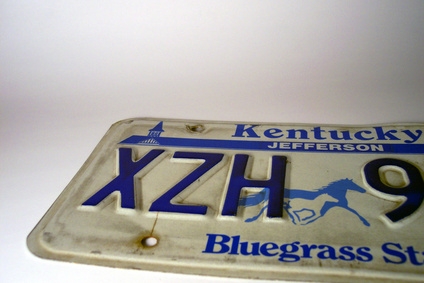
The state in which you reside issues license plates, and every state requires that registered vehicles have at least one plate attached in the place prescribed by state law. License plates help police identify vehicles and drivers on the roads.
The United States Department of Transportation (USDOT) regulates motor vehicles in the country. However, the USDOT leaves questions of vehicle license and titling to the individual states.
Each state's laws dictate where the license plates must be attached. For example, according to the North Carolina General Statutes 20-63(d), registration plates must be attached in the front and back of the vehicle unless the Department of Motor Vehicles only issues one. In that case, the plate must be attached to the rear of the vehicle.
Each state sets its own rules for issuing license plates and registering motor vehicles. For example, according to the Colorado Division of Motor Vehicles, vehicle owners must show proof that they have insurance on the vehicle to register that vehicle.